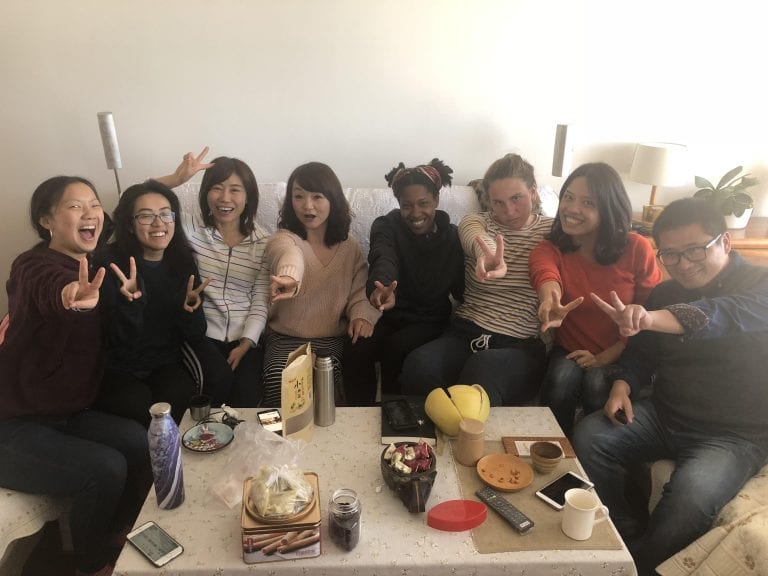By Emily Golden
In your original post, you defined yourself in your own words. Review this post and reflect on your own internal changes. Do you still identify in the same way? Has your time abroad given you new insights into your own identity? Has anything changed? If so, what? What do you think will be the hardest part of leaving your international community? How do you think you will stay connected to this community?
Noticing the changes I’ve gone through since my first post was surprising for me. While I did expect my outlook and perspective on my identity to change, I did not expect it to change in the way that it did. The lack of confidence in my language ability and my fear surrounding my conversational skills is quite evident in the tone of my first post. I remember feeling that anxiety in the beginning but I feel so detached from that now. I think that fear stemmed from me going about my abroad experience trying to trick everyone in China into thinking that I was not Chinese American. Not only did I have the language skills to explain how I’m Chinese, but not really, and how I moved to the US when I was 1 year old, but how I have a single white mother, but I also felt embarrassed and burdened to answer the inevitable question of “where are you from?”
But now, having taken an honest survey of my language abilities and having 3 months of being asked the same thing, I approach the question with a whole new attitude. Instead of dread, I take it as an opportunity to start a dialogue. For many Chinese people I am challenging what that think an American looks like to them and I look at it with this perspective now instead of thinking they’re going to judge me. I also understand that I’m not going to become fluent overnight and it’s ok to not understand when people engage you in conversation but its important to try. While this isn’t a change in identity, the pretty obvious realization has changed the way I carry myself here.
I also thought it was interesting how I identified strongly as an New Yorker in my first post. While I’m still impatient as the next person and dare to cross intersections while others wait, this identity has become less and less important. I’ve heard that identity is all about locality, so when I’m in America I feel the need to call myself a New Yorker but when I’m abroad, especially for a longer period of time, American is the only “marker” that I feel is super important. But I can tell, the moment I step back on American soil that part of my identity will probably change again.
For me, I think the hardest part of leaving my international community is acknowledging that it’s even happening. Just 4 months ago I didn’t know anyone coming into the program, didn’t have any of these amazing people in my life, and didn’t know how fast the semester would fly by. Now, just 4 months wiser it is going to be extremely difficult saying goodbye to the people I just met but who have become family so quickly. You build your community bonds so quickly when you’re abroad, and I can’t believe how many lifelong friends I now have when only 12 weeks ago I didn’t even know who they were.
Beyond the social media that everyone relies on here to stay in touch, I want to visit my classmates at their homes around the country. This journey would take me North, West, and South and I can’t wait to see how our relationships will grow from here on out. Regarding my teachers who I also consider my friends, they’ve shown how they still stay in touch with students from over a decade ago. I hope to be among that group too and stay in touch as the continue to change the lives of study abroad students likes me.
It is truly impossible to put into words the speed in which this semester has flown by and yet how many lessons, activities, and friendships have been fit in at the same time. Having my perspective on identity to guide me has been instrumental in my experience and I wouldn’t trade it for anything else.








